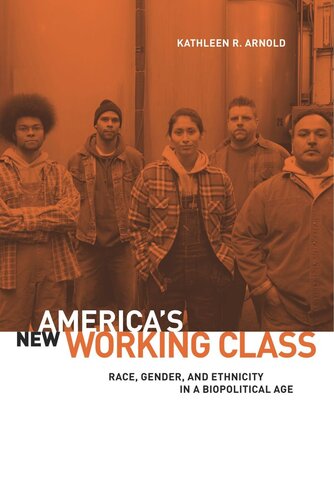

Most ebook files are in PDF format, so you can easily read them using various software such as Foxit Reader or directly on the Google Chrome browser.
Some ebook files are released by publishers in other formats such as .awz, .mobi, .epub, .fb2, etc. You may need to install specific software to read these formats on mobile/PC, such as Calibre.
Please read the tutorial at this link: https://ebookbell.com/faq
We offer FREE conversion to the popular formats you request; however, this may take some time. Therefore, right after payment, please email us, and we will try to provide the service as quickly as possible.
For some exceptional file formats or broken links (if any), please refrain from opening any disputes. Instead, email us first, and we will try to assist within a maximum of 6 hours.
EbookBell Team

0.0
0 reviewsToday’s political controversy over immigration highlights the plight of the working class in this country as perhaps no other issue has recently done. The political status of immigrants exposes the power dynamics of the “new working class,” which includes the former labor aristocracy, women, and people of color. This new working class suffers exploitation in advanced industrial countries as the social cost of capitalism’s success in a neoliberal and globalized political economy. Paradoxically, as borders become more open, they are also increasingly fortified, subjecting many workers to the suspension of law.
In this book, Kathleen Arnold analyzes the role of the state’s “prerogative power” in creating and sustaining this condition of severe inequality for the most marginalized sectors of our population in the United States. Drawing on a wide range of theoretical literature from Locke to Marx and Agamben (whose notion of “bare life” features prominently in her construal of this as a “biopolitical” era), she focuses attention especially on the values of asceticism derived from the Protestant work ethic to explain how they function as ideological justification for the exercise of prerogative power by the state.
As a counter to this repressive set of values, she develops the notion of “authentic love” borrowed from Simone de Beauvoir as a possible approach for dealing with the complex issues of exploitation in liberal democracy today.